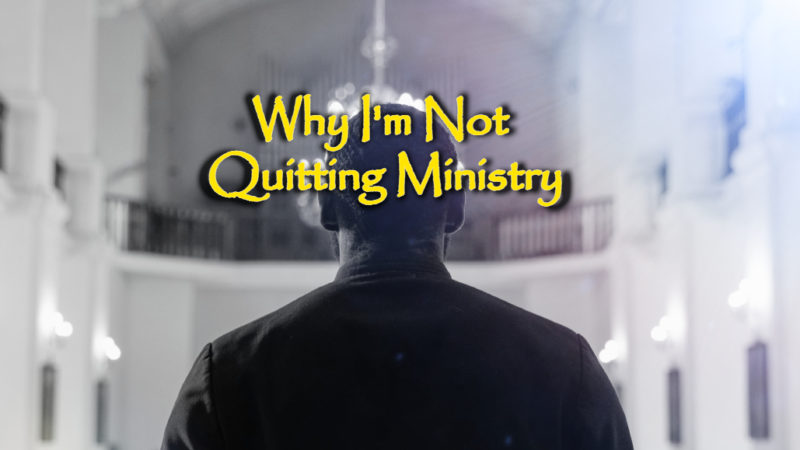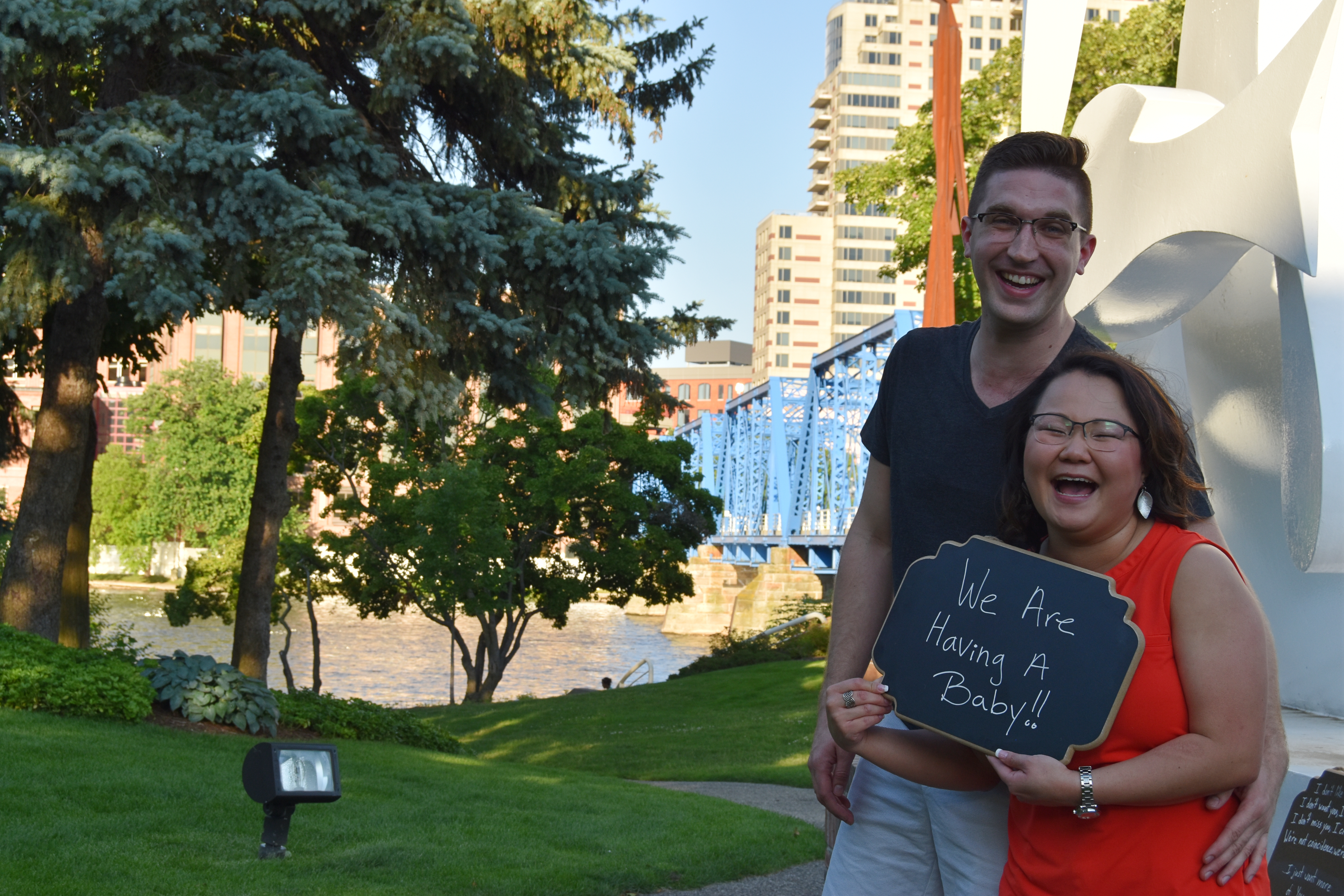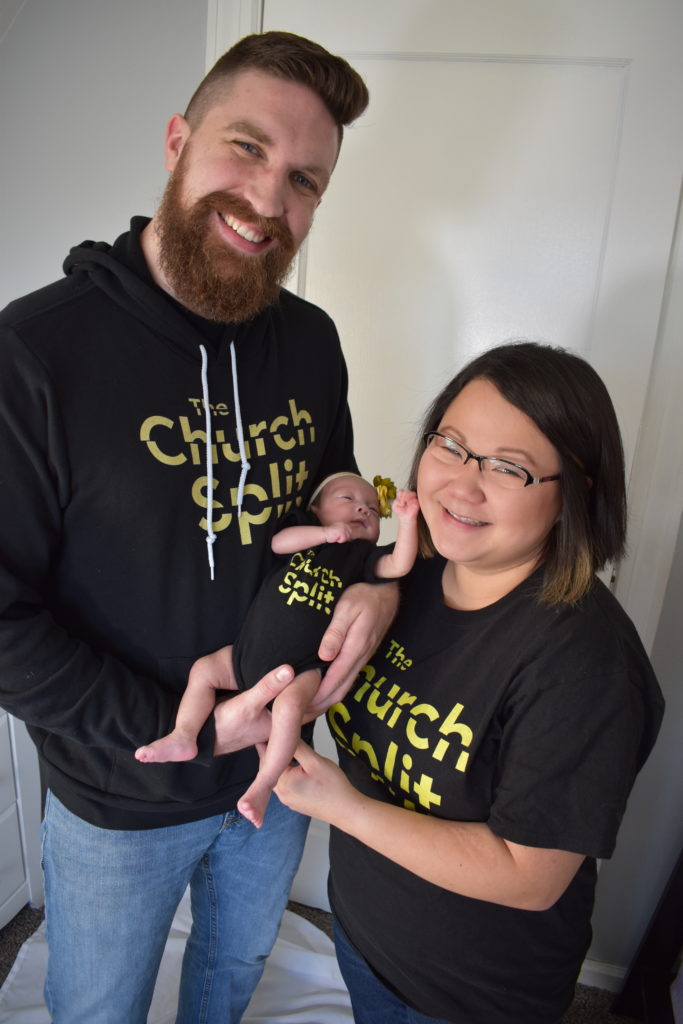10 Years of Study: Tips and Reflections
This year marks a milestone for me. I’ve now been studying theology and apologetics for a decade. It has been quite the ride. A full detailing of everything I’ve done and everyone I’ve met is more of a book than a blog article. But, this seems like a good time to share some of what I’ve learned and how I got to where I am now. I think others out there, especially those just getting started in their own studies, could be encouraged by what I have to share. Perhaps church leaders could find this helpful for how they should counsel those in their congregation who they suspect have similar interests to what I have had. This article will lay out some of my personal journey into apologetics and theology, some major events along the way, and things I wished I knew 10 years ago.
So how did it start?
“What must I do?”
While I never voiced it as such, that was, in effect, my question one Sunday 10 years ago. I was 15 years old, in my freshman year of high school. A youth group retreat that weekend had made me seriously start to evaluate my walk with God. It wasn’t anything to do with what was said by the speaker during the retreat, or what was said in our small group breakout discussions. (I remember almost nothing from the speaker.) It was something my youth pastor had said in reference to our speaker. It was something along the lines of “how deep and challenging” these talks were. I was jarred with the realization that I didn’t feel challenged by it.
I was homeschooled growing up (meaning I was supposed to be self-motivated in my studies), and in high school my grandpa (a retired teacher) doubled as my math teacher. Seeing that I had a knack for mathematics, he had high expectations and pushed me hard to do well, never accepting less than my best. (For reference, I began doing calculus my sophomore year.) Luke 12:48 was frequently cited to me. After that retreat, I knew there was an imbalance in my life. I was getting challenged to do my best with what God had given me in school, in math. But not in church, with my faith.
I realized I was…different from others. I was utterly fascinated with things others weren’t. Anytime someone talked about the background to a passage, or talked about what I would later come to know as apologetics, I was taken in. I would pay closer attention any time anyone would say “Our versions have ___, but the Greek word…”. Any detail, any scrap that pointed to something I wouldn’t get in a devotional or hear on the average Sunday, and I was yours. The earliest apologetics I was exposed to was Ken Ham speaking at my church on Genesis (I grew up 15 minutes from the Creation Museum).[1] In such talks I heard the statistics on young people leaving their faith, and quite honestly, I was concerned. If it’s 70 or 75 percent of young people that won’t last, I didn’t like my chances!
So, I was self-motivated, interested in deeper things, concerned with the state of the church, and now I realize I want to be challenged in my faith just as I am in school. In the words of Michael Jordan in the docuseries The Last Dance, “That’s all I needed.” It was time to take things into my own hands. I didn’t know where this would take me, and I still don’t, but I knew it was time to start studying. I didn’t know what I should study, so I asked my dad.
Neither of my parents really were in a position to direct me in this venture, but I didn’t know any better. My dad (bless his heart) referred me to where most any Baptist (or general evangelical) who didn’t know any better would have if someone asked them who to read if they wanted to study theology: John Piper. We only had one of his books, Don’t Waste Your Life. It turned out to be meh, not what I was after. I asked to try something else we had. I was handed our copy of Mere Christianity. Immediately I knew this, THIS at last was bone of my bone and flesh of my flesh. I don’t remember the order of my early reads, but they began with a heavy dosage of C.S. Lewis: Mere Christianity, The Problem of Pain, The Screwtape Letters (my favorite of Lewis), The Great Divorce…and I never looked back.
I very quickly gravitated to one of my youth leaders in particular, the only person I knew at the time who was trained in theology and apologetics. He served as a real mentor in my early stages. He remains a close friend and one of the most educated people I know. My sophomore year of highschool I read his ThM thesis on the sons of God in Genesis 6 (spoiler alert: they’re divine beings and Nephilim doesn’t mean “fallen ones”)[2] as well as a couple papers by some guy named Michael Heiser[3] that he cited on the Divine Council. I didn’t know it at the time, but I had just been exposed to the field of biblical studies. Around Easter 2014, my youth leader published a short book[4] on apologetics for the Resurrection of Jesus, and he referred to the work of some guy named Gary Habermas that looked pretty cool.
Fall of 2013 (start of my sophomore year) I read Bruce Shelley’s Church History In Plain Language for school, and the following fall I read Habermas and Licona’s The Case for The Resurrection of Jesus, which cited early church fathers such as Justin Martyr and Eusebius of Caesarea. I figured that if they formed a part of the case for the Resurrection, they would be important to know, so I read them shortly thereafter…You can see where this is going. Before I’d even graduated highschool, I’d read dissertations, patristic primary sources, and academic articles on biblical studies. All because I wanted to give God my best.
For what it’s worth…
I’ve been at this for ten years now. I’ve spent a lot of time thinking, not just about arguments and ideas, but about my own trajectory and how I got to where I am. If I could go back and do some things differently, I would. But there are some things I wouldn’t. Perhaps you or someone you know is just getting started into apologetics or has just begun asking questions on theology. Some of the following points may strike you as obvious, others perhaps not. Some of my mistakes you will go ahead and do anyway, in which case…good luck, I guess. So, for what it’s worth and in no particular order, here’s 10 tips/takeaways I have from my own growth over the years. I am by no means a master at this, but I do know a thing or two by now.
Shut Up.
This is one thing that I (largely) did well, although I wasn’t always happy about it. It is a real temptation for apologists to view those not so intellectually inclined as patients in need of the life-saving drug of apologetics. There is a legitimate “cage-stage” for apologetics in a similar way to Calvinism. It naturally breeds a sort of “me vs. the world” mentality that leads one to want to take on the world straightaway upon discovery. (See some very wise words from Frank Turek and others in this video.) That might make for a good movie, but is foolish to do in reality. Even the apostle Paul took 3 years after his conversion prior to going up to Jerusalem (Galatians 1:15-18), and the apostles sat under Jesus’ teaching for at least that long. Speaking of movies, I’ve always liked the first Thor movie. Anthony Hopkins’ Odin has a line that has always resonated with me: “A wise king never seeks out war. But he must always be ready for it.” The Christian life is nothing less than a war (Ephesians 6:10-17), but we must know how to actually use the weapons we fight with. That takes time to learn, particularly when one spends any length of time studying apologetics or theology. And, per Colossians 4, our speech is to be graceful and well-seasoned “so that we may know how to answer everyone.” Be a wise king, and prepare for war, but don’t go kicking around for a worldview fistfight. Don’t try and start teaching others. Reading On Guard and The Case For Christ does not qualify you to start teaching an apologetics class. You may have just attended a really cool conference, but all that means is you know where to start looking for answers. In Braxton Hunter’s (of Trinity Radio fame) terms, you’re an “answer finder”, not yet an “answer giver”.
It was a long, long time before I was really able to put my study into practice. I wasn’t encountering challenges to my faith, had no skeptical friends, and was never challenged by a professor in a God’s Not Dead kind of way. This frustrated me when I was younger, but now I see God’s wisdom in keeping me from what he did. At times I lacked intellectual humility, and there were certain areas I hadn’t studied that I needed to. To fully tell this story would make this article even longer, but in 2018 I had another one of those defining events. I found myself in a not-so-desirable job with a lot of time on my hands to listen to podcasts. It was at this time that I discovered Capturing Christianity as well as Dr. Craig’s Defenders class episodes. During this year I experienced nothing short of a Renaissance, in two ways. First, I pretty much discovered philosophy then. Until that point, my apologetics intake had basically just been Resurrection and Gospel reliability, but now I was starting to see the importance of needing good philosophy. (More on that later.) Second, for the first time I really started to grasp just how much was out there and came to grips with my own inability to master it all. Stay aware of your own fallibility and finitude.
Also, the less you talk, the more you can listen, which is a superpower in the apologetics arena. You will be a worthless apologist if you cannot stop making your own point long enough to hear someone else make theirs. So, if you want to go far in apologetics, step one is to shut up.
Seriously, Shut Up.
It’s worth repeating. Shut up.
You are going to make mistakes.
This is something else that I’ve done well at. There are several ways in which you will make mistakes. One is speaking on a certain subject and doing it poorly, and another is being wrong on a certain topic. On the first mistake, my first opportunity to do some speaking on apologetics came my senior year of high school. We had a new youth pastor who wanted the upperclassmen to take some leadership, which I was glad to see. A friend and I were asked if we would do something on apologetics for biblical inerrancy, and we, excited at the chance to do some apologetics, eagerly said yes and started preparing. We decided to do a comparative analysis of Scripture compared with the Book of Mormon and the Qu’ran. We found a couple verses from each that contained either a historical or scientific error or else internally contradicted itself, pulled some stereotypical fulfilled prophecies from the Bible, and spoke on that.
You may already see the multiple problems here. If I could go back and get this opportunity again, I would say no for several reasons. First, I now consider inerrancy to be practically indefensible. I still affirm it (and the virgin birth; if you know, you know), but it is notoriously difficult to defend and argue for, for the simple fact that the territory one is covering is just so vast. One would need to be a master in archaeology, Egyptology, Assyriology, hermeneutics, and ancient near eastern literature. And that’s just for the Old Testament. Even with the Old Testament, we encounter the question of genre. Surely it means different things for 1 Kings to be inerrant from what it means for Proverbs to be inerrant. There’s so much to Scripture that trying to defend it all is inefficient. Second, inerrancy is hardly an essential Christian doctrine. It has become one in contemporary evangelicalism, but we have much bigger fish to fry, such as the deity of Jesus, the Trinity, the Atonement, the Resurrection, etc.[5] Third, we cherry picked verses. Were they actual problems? Yes, but I don’t think there was a whole lot of epistemic virtue in how we went about it. Fourth, we lacked the categories to actually make a coherent argument in this way. The only logic we had was deduction. Had we attempted an abductive argument, we could have perhaps made it decent. Even still, our conclusion still wouldn’t have been strong, but as it is, inerrancy simply doesn’t follow from the premises that other books contain problems and ours has fulfilled prophecy. Youth pastors, it is truly wonderful if you have students who are bright and/or have a passion for apologetics. So come alongside them and help them learn, but in all likelihood they are not yet ready to teach on it.
Start slow.
This may depend on one’s age. I started in high school, but others come to apologetics in their adult years. Last year I read over 35 books. That is the most I’ve ever read in one year. The first couple years it was about one book per month. Early on in my journey, my goal was just to read 10 pages per day out of at least 1 book. Progress was slow, but it was progress. Yes, it took me a month to read Irenaeus’ Against Heresies, but I still read it and learned from it. You climb mountains one step at a time, and getting started as a thinking Christian is the same way. It takes time to learn, especially things like historiography, church history, philosophy of religion, philosophy of mind, epistemology, biblical studies, etc. Be patient with yourself, and give yourself the time to learn.
Start small.
I have not always done this very well. When I was 16 years old I discovered Logos Bible Software, and downloaded the app to my phone. There were some free books, and I was so glad to find one that looked good. It was Augustus Strong’s Systematic Theology. It said theology in the title and that’s what I wanted more of, so I started reading it. Some of it I tracked just fine. Other stuff, not so much, and I admitted defeat after a couple months and a little over 100 pages. It was some time before I had the categories of “lay friendly” and “academic”. In philosophy I had another hiccup while in college. I’d heard of Richard Swinburne before, and I knew I needed to read him, so I ordered The Existence of God and got started. I was 100 pages in prior to realizing that I wasn’t getting a lot out of it simply because I didn’t yet have the philosophical chops. So I gave it to a philosophy major friend who enjoyed it more than I could.
The resurrection was one area I did this well in: I started with my youth leader’s book, In Defense of Easter, which is very accessible. After that, it was Licona and Habermas’ The Case for the Resurrection of Jesus (still accessible but more information heavy) before moving on to Licona’s dissertation, The Resurrection of Jesus: A New Historiographical Approach. After that, everything’s been fair game. Go a couple books in before you really get into the weeds. You have to walk before you can run.
Find someone more experienced.
Kylo Ren was actually wrong when he told Rey “You need a teacher.” That’s because Rey was written to be perfect and have no flaws of any kind. There was no ignorance of the Force she needed to overcome. She didn’t need a teacher, but you do, because unlike Rey, you are realistic and relatable. (Although you do have just as much claim to be a Skywalker as she did.) At any stage in your apologetics journey, you can always benefit from someone who’s been doing it longer coming alongside you. Seek out a master to be a padawan to, and have a teachable spirit. I am indebted to my youth leader for being that to me, as I have only been blessed by his guidance. Church leaders, there is a good chance you have an opportunity to step up and have a direct influence in the life of a budding apologist.
Read broadly.
Do this especially while you’re busy shutting up. This is applicable in multiple ways. First, in the subjects you study. One mistake I made is I took too long before getting into philosophy. Find a lay-friendly book on epistemology (perhaps Dew & Foreman’s How Do We Know?), and then get into some metaphysics (Hasker’s Metaphysics is quite good as a first read). The soul is another topic that is crucial to know. JP Moreland’s The Soul is a good first step in that direction. I am by no means an expert in any of those areas and I don’t claim to be a philosopher, but I am conversant with the general issues in those areas. Also, read primary sources. A pet peeve of mine is when people only live in the secondary literature on early Christianity and medieval theology. I’m sure books published by Crossway on church history are ok, but please, read Irenaeus, Eusebius, Augustine, Boethius, and Aquinas for yourself. They don’t bite. Also, it’s just a great feeling when you read a scholarly work on some topic and it cites a primary source you’re familiar with.
A second application of this is in the views that you read. You’re a dualist about the soul? Ok, fine, but what opposing views have you heard or read? You believe in eternal conscious torment? Cool, but what conditionalists or universalists have you heard or read? The reason I mention dualism and eternal torment specifically is that, as with probably most Christians, those were views I once held. But, a funny thing happened. Upon diving into the arguments for conditionalism[6] (otherwise known as annihilationism) I became persuaded that it made the best sense of Scripture and my belief in eternal torment for the wicked was false. I had begun listening to the Rethinking Hell podcast in 2018, and over the next two and a half years I sat with the arguments, and I tried to resist them, but in January 2021, I was at last dragged kicking and screaming into the annihilationist camp.
Last year, I went philosophy-heavy in my reading, focusing on the philosophy of mind. I was a committed dualist[7] despite reading physicalists such as Nancey Murphy, Penelope Rowlatt, Joel Green, and emergentist William Hasker. But then another funny thing happened. I read idealists Keith Ward and Bernardo Kastrup, and I realized that I had no good counter to the idealist case. I wasn’t dragged kicking and screaming here, as I had been intrigued by the notion of idealism for some time, but I have become persuaded that, absent consciousness, the physical world does not exist.
Reading broadly is helpful, but it must be coupled with epistemic humility. You might be wrong about things you can’t possibly imagine thinking differently on. If you want to live the thoughtful and contemplative life, you must have the courage to follow the evidence, wherever it leads. This is not for everyone, and I do not intend to disparage those that don’t have this courage. Studying broadly carries with it the risk that you will find an opposing viewpoint persuasive. But it will be indispensable for those Christians that want to get the most out of studying disciplines relevant to apologetics.
Read Scripture.
This is something that I had already been doing when I found apologetics, as shortly after I began studying, I finished reading through the whole Bible for the first time. It is absolutely imperative that one not neglect the study of Scripture as they study their reasons for why they believe it. Another big pet peeve of mine is apologists that don’t know Scripture well. You’re claiming to defend something and you don’t even know what it is? “That’s a bold strategy, Cotton, let’s see if it pays off for him.” One of the greatest apologetic benefits to knowing Scripture is that you won’t get caught off guard by the skeptic who thinks they’ll bring something out of the Bible that is supposed to concern Christians. One does not need to sacrifice a deep knowledge of Scripture for robust study of early Christianity, philosophy, or biblical studies. I’ve been able to hear Dr. Lydia McGrew, philosopher and apologist, speak on more than one occasion, and on one of those I asked her about the relationship between her academic study of Scripture and her personal study. I’ll never forget her response: “I try to keep them as close together as possible.” Words for the cerebral Christian to live by.
Ask around.
This is easier done today than 10 years ago. It’s been very interesting to watch the landscape of apologetics change. Today, it’s actually not so uncommon for a church to have a group that meets to discuss apologetics. Pastors seem to have begun warming up to the idea. Some apologists have become household names: Frank Turek, Lee Strobel, William Lane Craig, Sean McDowell, Alisa Childers, etc. Many people who wouldn’t consider themselves very apologetics-oriented absolutely loved Koukl’s book Tactics. Today, if you were to ask people in your church if they’d be interested in meeting every other week to talk about this or that book in apologetics or theology, I suspect you’d get some bites. For several years I was rather pessimistic about what the average churchgoer really wants. I used to think they didn’t want to be challenged, but I was wrong. People are starved for good content. They enjoy hearing something that makes them think about this or that passage in a new way. I think more people than not really want to be pushed, they just don’t know how. I also think the average person is more capable than they’re given credit for when it comes to theology. If you can understand algebra and pre-calculus in high school, there is no reason why you couldn’t also understand Lewis, Craig, or Moreland. Of course, not everyone is in the Swinburne-tier of intelligence, but I believe the interest is there.
Also, there’s been an increase in apologetics resources put out by women that are in a unique position to speak to mothers. The more mothers that know some apologetics means more kids that know some apologetics, which bodes well for the future. No longer is apologetics almost exclusively a male enterprise.
Have a favorite.
I know, I know I just said to read broadly. But what I want to bring out here is that generalizing has its limits. It’s important to have a passing familiarity with multiple disciplines, but don’t let that keep you from having a favorite, something that’s really your bread and butter. Perhaps the topic of the problem of evil is your favorite, or maybe the moral argument, or fine-tuning. For me, anything to do with biblical studies/early christianity is my favorite to read and talk about, whether it’s history or theology. I love both Old and New Testament studies, as well as Second Temple Judaism and early church history. But, I also enjoy metaphysics, philosophy of time, and the history of philosophy. Not everyone has all those interests, though. Not everyone has the same drive that I do, which is ok. But find your wheelhouse, and I bet you would be surprised at how relevant it is to apologetics and how it can impact your evangelism. I write this also to appeal to those that may feel as if they are outclassed when it comes to intelligence. You may feel that you’re just the average Joe and will never arrive at PhD-level knowledge. Perhaps you really are not as bright as someone else, and that’s ok. You can still find some area that you can get conversant in. Apologetics is still for you. God still wants your mind along with the rest of you. It just takes putting one foot in front of the other.
[1] While I remain a tentative Young Earth Creationist, today I am often disappointed with what passes for “apologetics” in young earth circles. Arguing for a young earth and a literal global flood is not apologetics, as they at best are only tertiary doctrines, if they even rise to the level of doctrine. Further, the rhetoric of those such as Ken Ham is unhelpful to good dialogue between faithful Christians who differ on Genesis. I am very thankful to Answers in Genesis, though, for the role they have played in my own growth.
[2] For a detailed and accessible book on the topic, see: https://www.amazon.com/Fallen-Sons-Nephilim-Tim-Chaffey-ebook/dp/B07TWT6Q5N?ref_=ast_sto_dp
[3] This was written before Heiser’s passing, and I phrased it tongue-in-cheek as a tribute to his influence on my thinking and that of many other students of the Bible. Perhaps only two or three others have impacted me as much as he has.
[4] Tim Chaffey, In Defense of Easter (2014)
[5] Yes, yes, I know Scripture is where we learn about those things. But who really wants to first argue for the inerrancy of ALL of Scripture so you can rationally affirm the truth of some of it? Is that really the best way of going about things?
[6] Conditionalism is often the preferred term for annihilationism, but I myself am indifferent on the term. It highlights the aspect of man’s nature that is essential for our view of final punishment: that immortality will be a gift of God given on the basis of faith in Christ, not the destiny that awaits everyone regardless of their life as is required in eternal torment and universalism.
[7] For the unfamiliar reader, dualism is the view that humans are composed of two substances, a material body and an immaterial soul. Physicalism (very broadly defined) is the view that persons just are their material bodies or some part of them, typically the brain. Emergentism is sometimes called emergent dualism, as it postulates that that immaterial part of us, our mind/soul, emerges from the complexity of the arrangement of our material parts, similar to a magnetic field from a coil with an electric current sent through it. Idealism is broadly defined as the thesis that reality is basically mind-like, or that the material depends on the mental.





